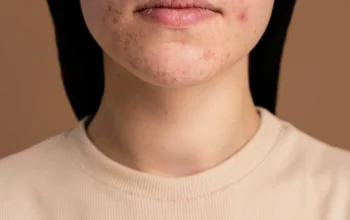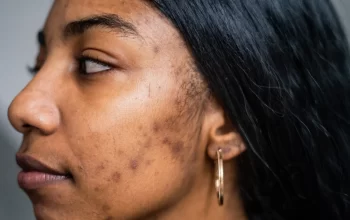The major difference between pimples and acne is that acne is an infection and pimples, although quite unpleasant, are simply one of its annoying symptoms. Acne is an inflammatory condition affecting your skin’s oil glands and hair follicles. Your pores are enclosed by oil glands that produce an oily substance called sebum. The excess sebum mixes with bacteria that results in an outbreak of pimples. This is a very common ailment but with a few simple tips, you can get rid of these nasty zits quickly and effectively.
There are several different ways to treat acne but before choosing any of these remedies, you need to consult a dermatologist who will recommend the medication best suited to your particular case. The most common medication prescribed is benzoyl peroxide, which helps to reduce the oil production in the skin. These medications have various side effects, so you must always seek medical advice before going for them. There are many over-the-counter medicines available that also help in treating acne; however these do not help in curing it completely.
There are creams available that also help in reducing sebum production in the skin and in some cases, they act as bleaching agents to get rid of the light scars that are left on the face after a pimple is removed. There are several herbal treatments that can be used for treating acne. Some of these herbs include aloe Vera, white willow bark, chickweed, turmeric, Rosemary and neem. These herbs help in getting rid of the excess oil in the hair follicles thereby reducing the inflammation. As these herbs to fight against bacteria, pimples also get cured faster.
You can also use natural methods to cure acne. The main objective is to get rid of the excess oil production in the skin and in this case, the hair follicles to release a substance called sebum that helps in maintaining skin moisture. When there is an excessive amount of sebum produced in the skin it leads to acne formation.
Another major cause of acne is the presence of blackheads or whiteheads in the skin. Blackheads are formed because of the accumulation of dirt in the pores and whiteheads are formed due to accumulation of bacteria and sebum in the hair follicles. When blackheads and whiteheads are present in the skin they cause irritation in the skin. This irritation in the skin causes acne to form in the skin.
The hormones responsible for causing acne at different stages of life are different. At puberty, the sebaceous glands produce an excessive amount of sebum which results in clogging of the hair follicles in the sebaceous glands. Pregnant women experience hormonal imbalance because of the rise in progesterone and estrogen levels. During menopause, the body experiences a reduction in the levels of testosterone, which is responsible for producing oil in the skin. Hormones like androgen, iodine, testosterone and cortisol all affect the acne causing process in different ways.









